Conversations
The MARS HILL AUDIO Conversations are extended dialogues with one or two guests. With a typical duration of an hour, Conversations allow a greater depth of analysis and a more extensive exchange of ideas than do our Journal interviews.
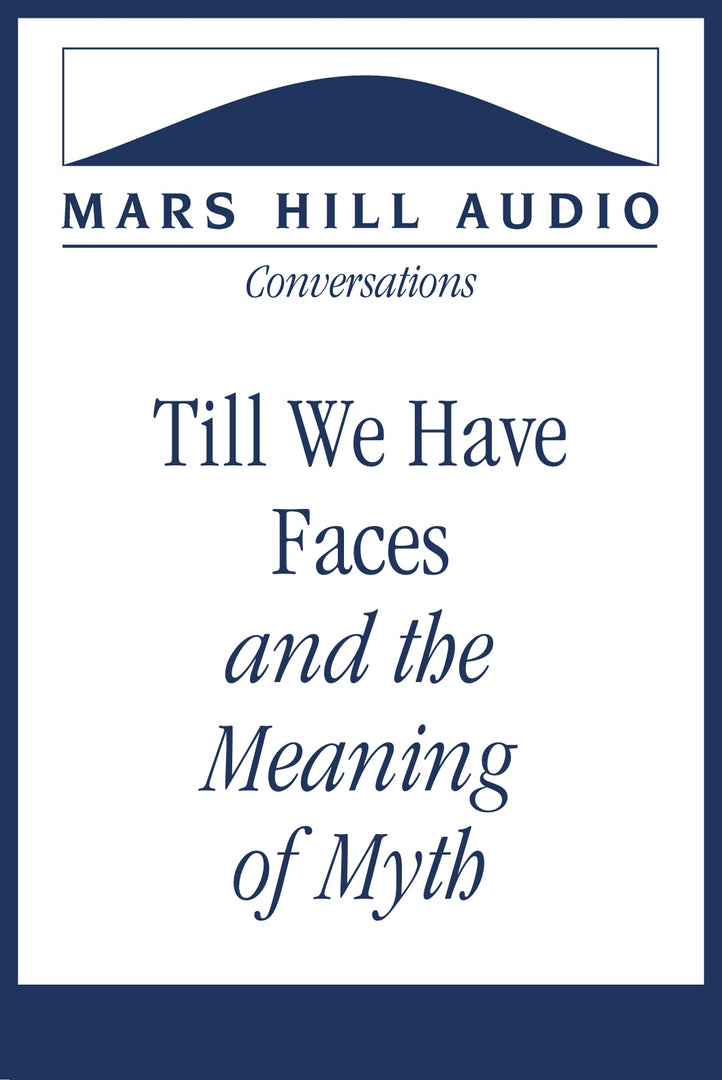
C. S. Lewis’s Till We Have Faces is, in his own words, “a myth retold.” Literary critic Thomas Howard explains that Lewis’s decision to tell this story as a myth was informed by the fact that the mythical outlook on the world is fundamentally opposed to the tenets of modernity, for which Lewis had such unrelenting criticism.
50 minutes.
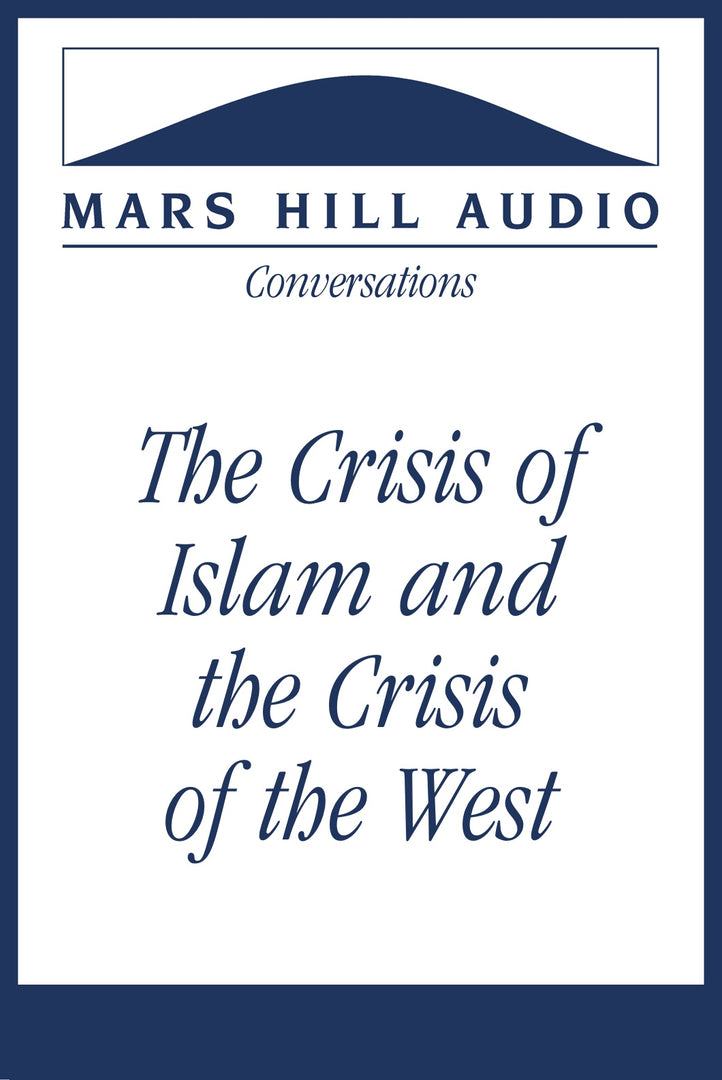
After the events of September 11, 2001, many people in the West began pursuing crash courses in understanding Islamic belief and history. As a result, many realized the wisdom of acquiring some historical perspective on what appears to be a clash of civilizations. In this Conversation, Bernard Lewis, a Western historian of the Middle East whose work is recognized around the world, helps provide that essential perspective.
50 minutes.
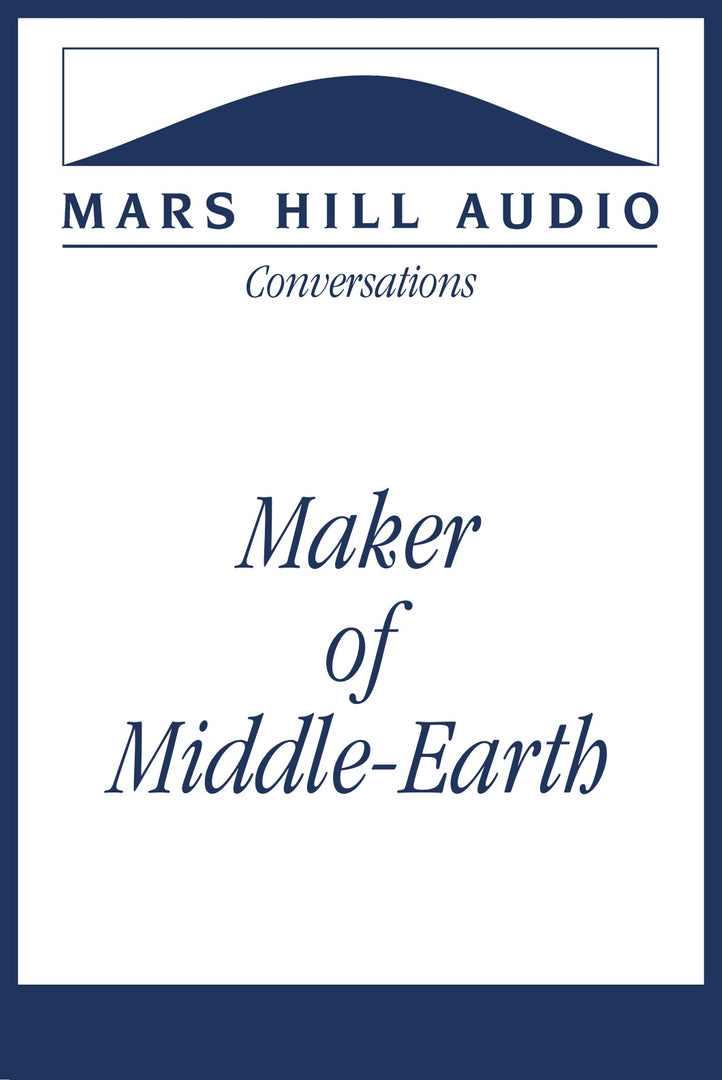
While it is not a story set in the twentieth century, Tom Shippey (author of J. R. R. Tolkien: Author of the Century) claims that The Lord of the Rings is very much a work of the twentieth century; the momentum of evil sweeps characters into action before they understand the events in which they are involved. Joseph Pearce (author of Tolkien: Man and Myth) defends The Lord of the Rings fantasy genre against those who would claim that realistic fiction is a better vessel for truth: because mythology is stripped of the factual, he explains, it can deal with truth unencumbered and therefore convey its moral more directly. Literary critic Ralph C. Wood explains why he has been drawn to J. R. R. Tolkien’s moral Middle-earth since his first reading of The Lord of the Rings in the 1960s. It is a world ordered by heroism, friendship, loyalty, and hope. These ties alone, he states, enable the hobbits to complete their quest and go where no one else can.
86 minutes.
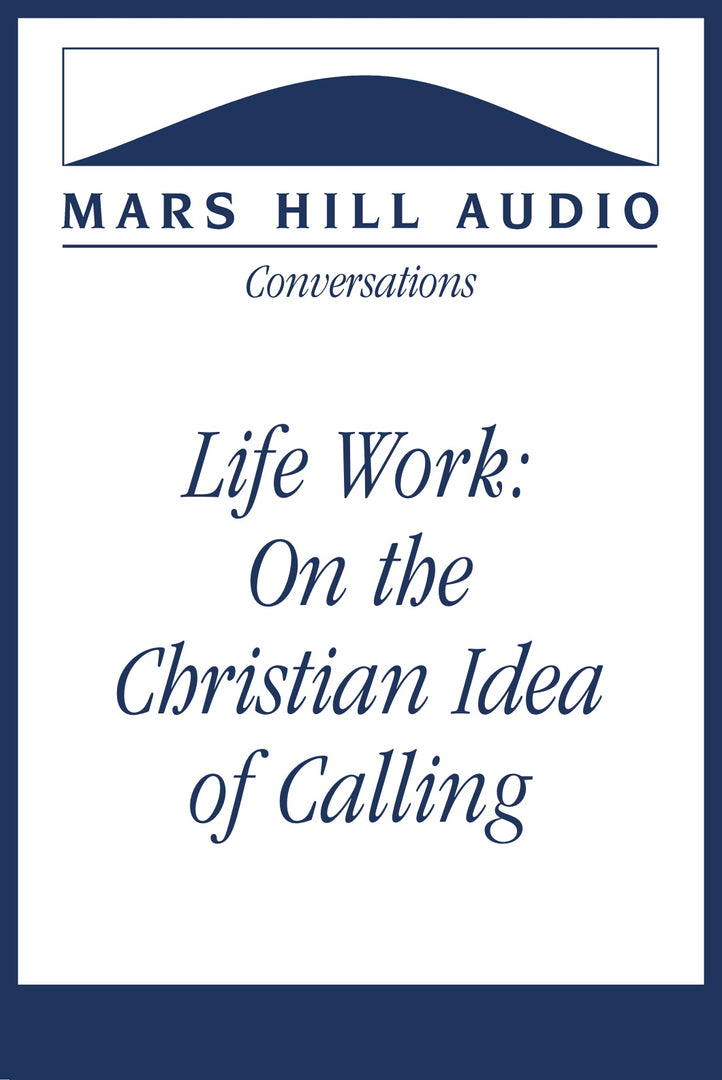
Paul Marshall, author of A Kind of Life Imposed on Man, discusses how society and the Church have understood work throughout history, and what positive ramifications we might expect to see if Christians began to understand their life at work as part of their life in Christ. On part two, Os Guinness, author of The Call, explains how vocation and identity have lost their theological moorings among Christians.
62 minutes.
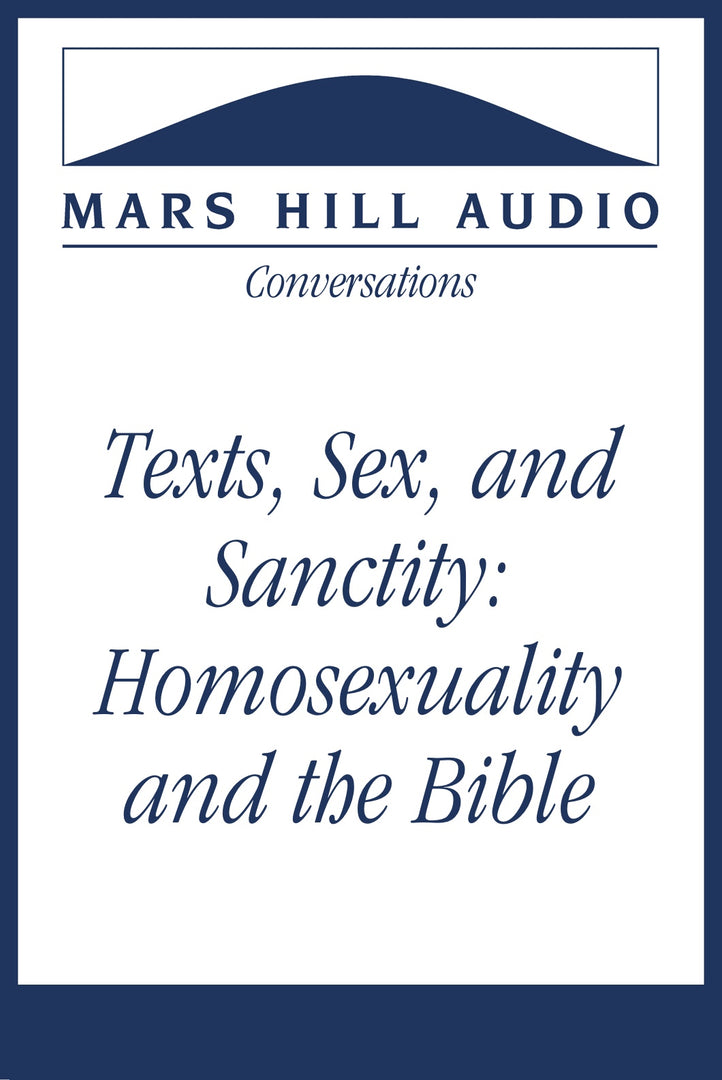
There are few issues within the church more potent than that of homosexuality. Barbara Wheeler, President of Auburn Theological Seminary in New York, has noted that “What we in the churches teach about homosexuality affects the lives of many more people than our own members.” In recent years, the debate on this issue has centered on disagreements over the exact nature of biblical teaching concerning sexuality. Dr. Robert Gagnon, Associate Professor of New Testament Pittsburgh Theological Seminary is one of the world’s foremost experts on the subject and the author of the critically acclaimed text, The Bible and Homosexual Practice. In this Conversation, Dr. Gagnon talks with Ken Myers about the cultural trends and theological arguments that have shaped the dispute over the past few decades, in the hope of clarifying the answers to many of these complex questions.
72 minutes.

In 1979, a much-respected physicist named John Polkinghorne resigned from his position at Cambridge. Just five years earlier he had been honored for his remarkable achievements in mathematical physics (he had been part of the team that discovered the quark) by being appointed a Fellow of the Royal Society. Polkinghorne was departing the environs of this profound and mysterious reflection on the nature of reality for a vocation no less intellectually and personally challenging: the study of theology and service as an Anglican priest. One of the benefits to the public of Polkinghorne’s twin interests in science and theology has been the remarkable series of books he has written since 1983, beginning with The Way the World Is, continuing with the publication of his 1993 Gifford Lectures (published as The Faith of a Physicist: Reflections of a Bottom-Up Thinker) and most recently Science and the Trinity: The Christian Encounter with Reality (Yale). Sir John Polkinghorne talks about the main themes of this book in this Conversation.
54 minutes.
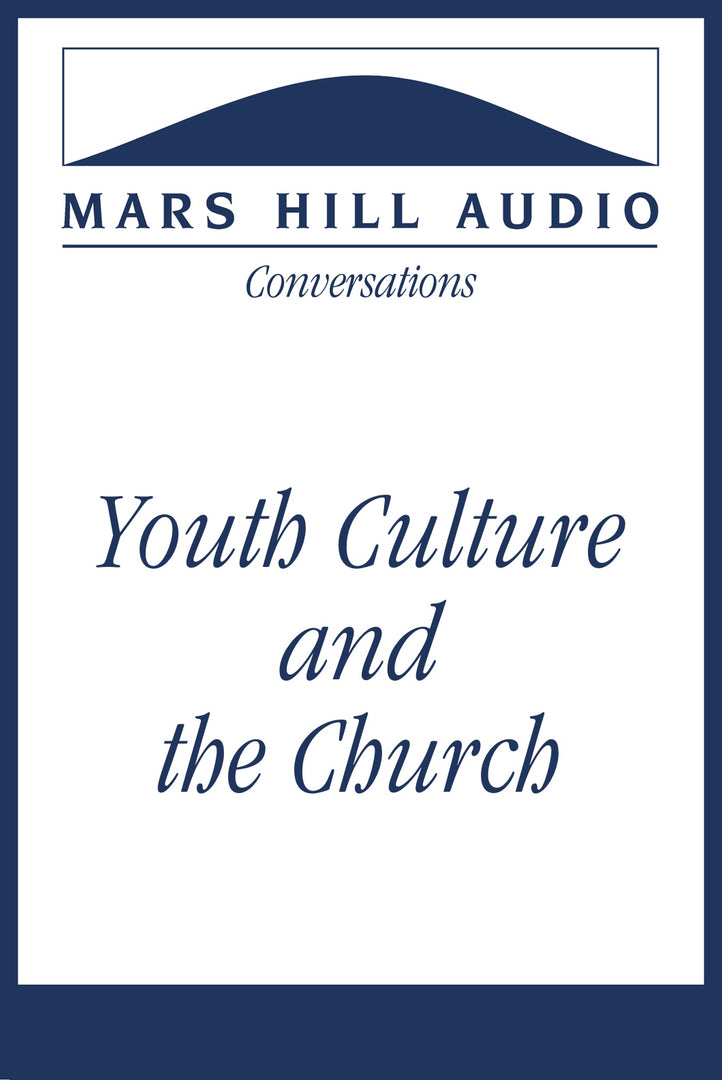
Mardi Keyes, from the Southborough, Massachusetts branch of L’Abri Fellowship, explains how modern assumptions about the nature of adolescence differ from a biblical understanding of human development. She also describes ways in which intergenerational fellowship within the Church can deter many adolescent crises. Then pastor Mark DeVries describes the ideas in his book Family-Based Youth Ministry.
74 minutes.
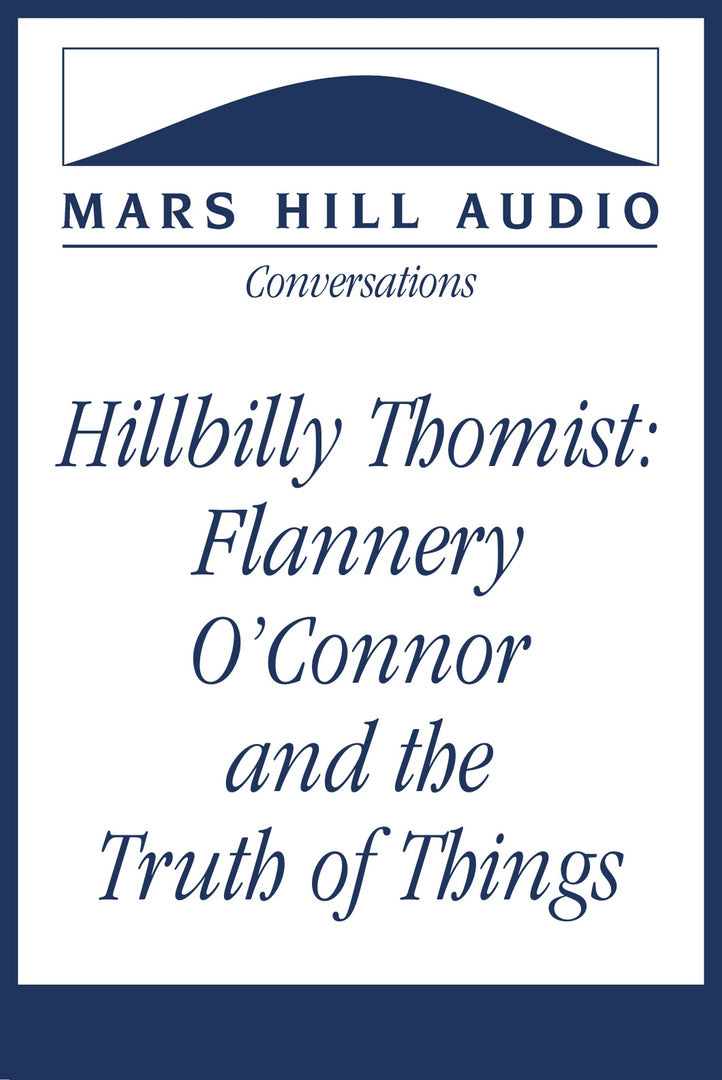
In this Conversation, Ken Myers talks with Susan Srigley about how Flannery O’Connor’s perception of reality suffuses her fiction in ways that fit the views of how art works developed by Thomas Aquinas, views often summarized as “sacramental” or “incarnational.” And Ralph Wood discusses O’Connor’s acceptance of the limits placed in our lives by Providence, how limits may be a source of wisdom rather than frustration.
60 minutes.
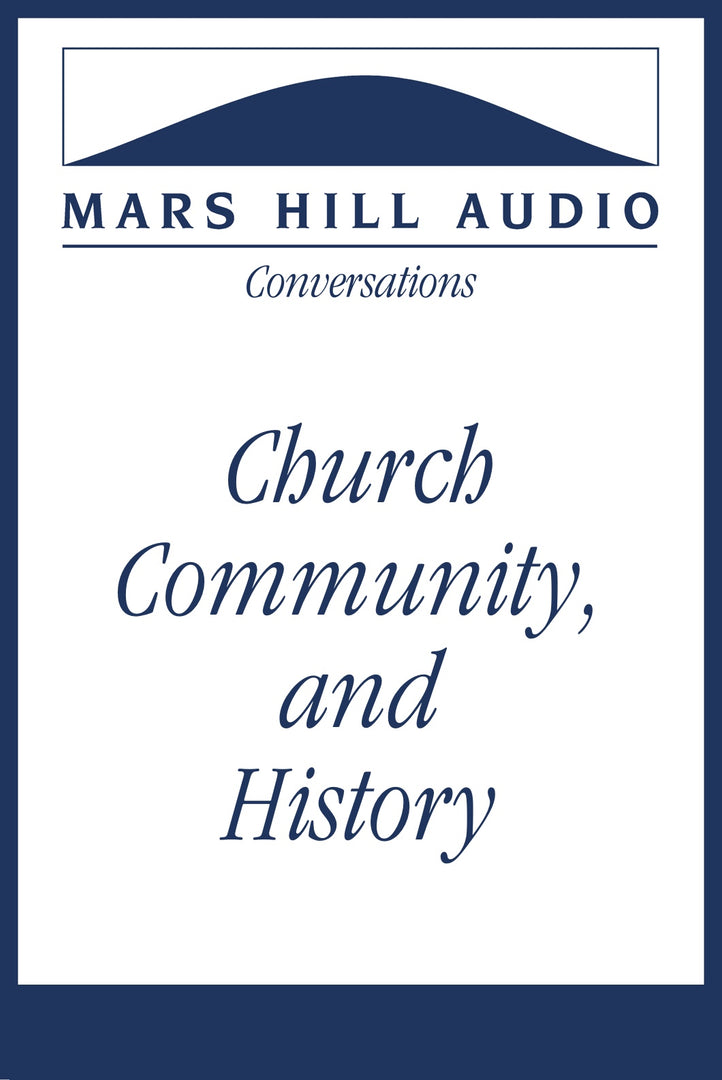
Robert Wuthnow of Princeton University discusses his book Sharing the Journey. He highlights the advantages and dangers of the small-group movement. Then Richard Lints, professor at Gordon-Conwell Seminary, discusses his book The Fabric of Theology, and the need for a return to an understanding of the importance of theology.
84 minutes.
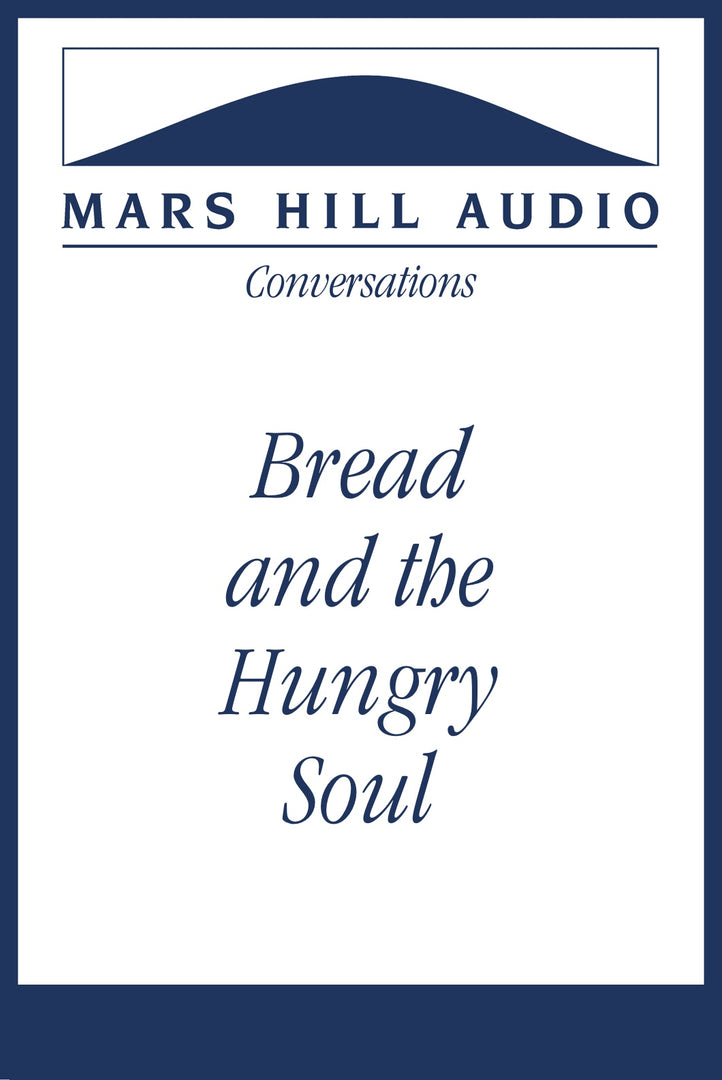
Leon Kass, physician, biologist, and professor of philosophy at the University of Chicago, discusses his book The Hungry Soul: Eating and the Perfecting of Our Nature, in which he explores how the activity of eating provides clues for understanding human nature and helps guide morality and communal life. Then Brother Peter Reinhart talks about the art of bread-making as a metaphor for spiritual life.
72 minutes.
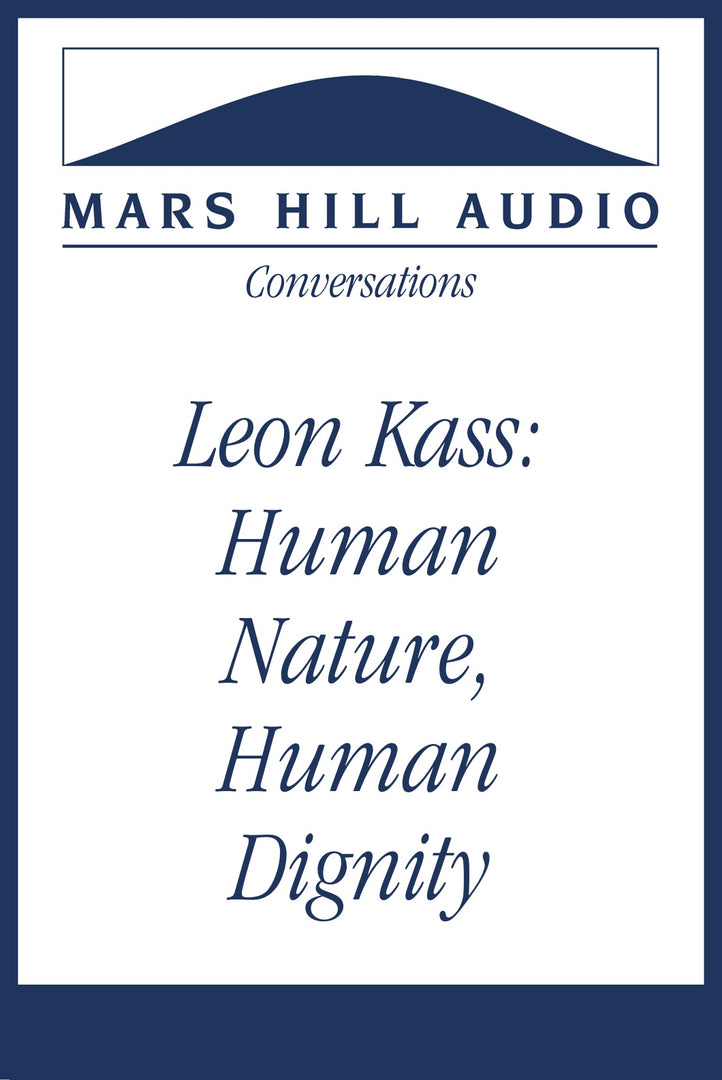
Modern people tend to ignore questions about the nature and purpose of things while learning to control them more efficiently. But as science and technology offer us the ability to fundamentally transform human nature, we can no longer avoid addressing metaphysical questions. The crisis of our time, many thinkers agree, is one concerning the definition of human nature. In “Human Life, Human Dignity,” Leon Kass outlines what is at stake and sets forth a framework for indispensable discussions surrounding biotechnologies. Kass stresses that we must approach the discussion with reverence and awe and that a major component of the discussion should be the notion of human dignity. Kass recommends that we turn first not to the findings of science and technology, but to the canon of “residual wisdom” in the East and West — found in literary, philosophical, and religious traditions — that vividly depicts human nature in its glories and tragedies.
60 minutes.
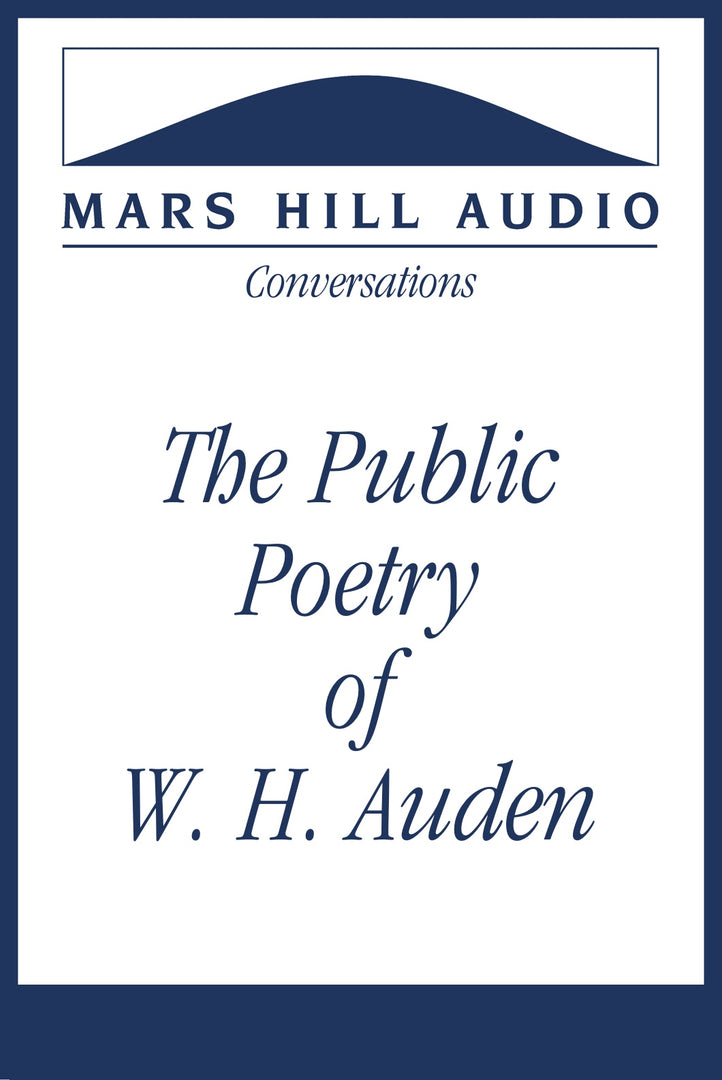
Literary critic Alan Jacobs talks about how W. H. Auden returned to the Church after recognizing that liberal humanism had no answers to the problem of human evil. He also discusses the social themes in Auden’s poetry, which avoided utopianism and apocalypticism.
58 minutes.
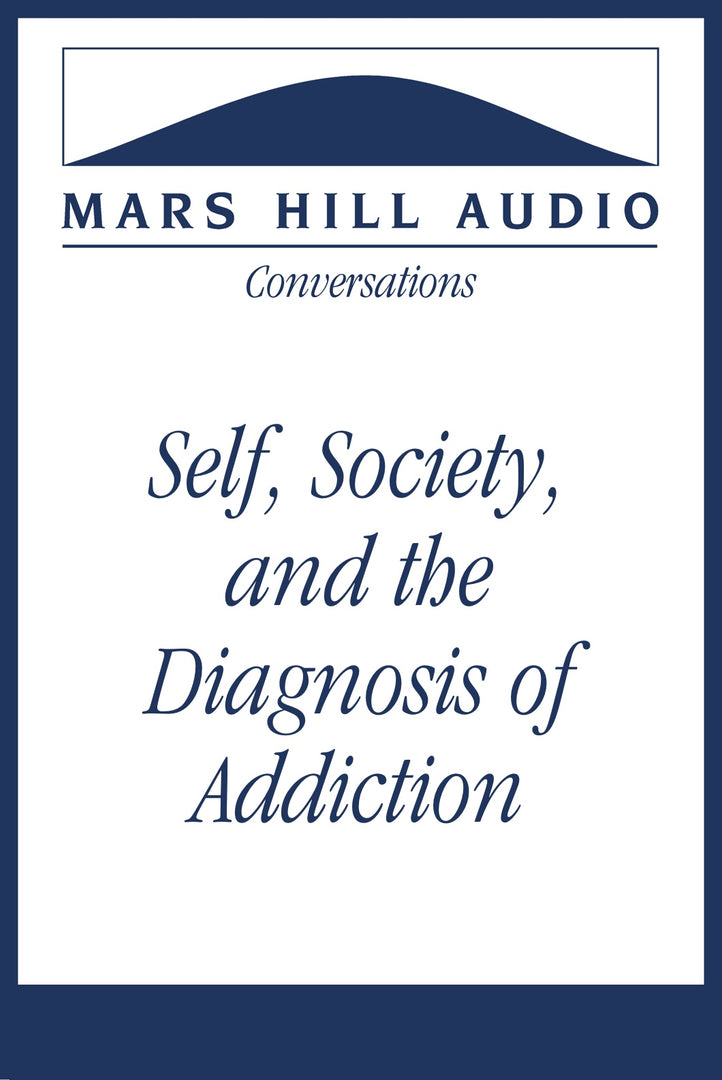
Sociologist John Steadman Rice, author of A Disease of One’s Own: Psychotherapy, Addiction, and the Emergence of Co-Dependency, maintains that the concept of codependency is rooted in the tenets of “liberation psychotherapy,” a way of thinking about the self that sees all psychological problems as a function of the restrictions placed on individuals by social institutions, especially by the family. Rice asks what kind of society will result if a critical mass of people are converted to an asocial existence.
48 minutes.
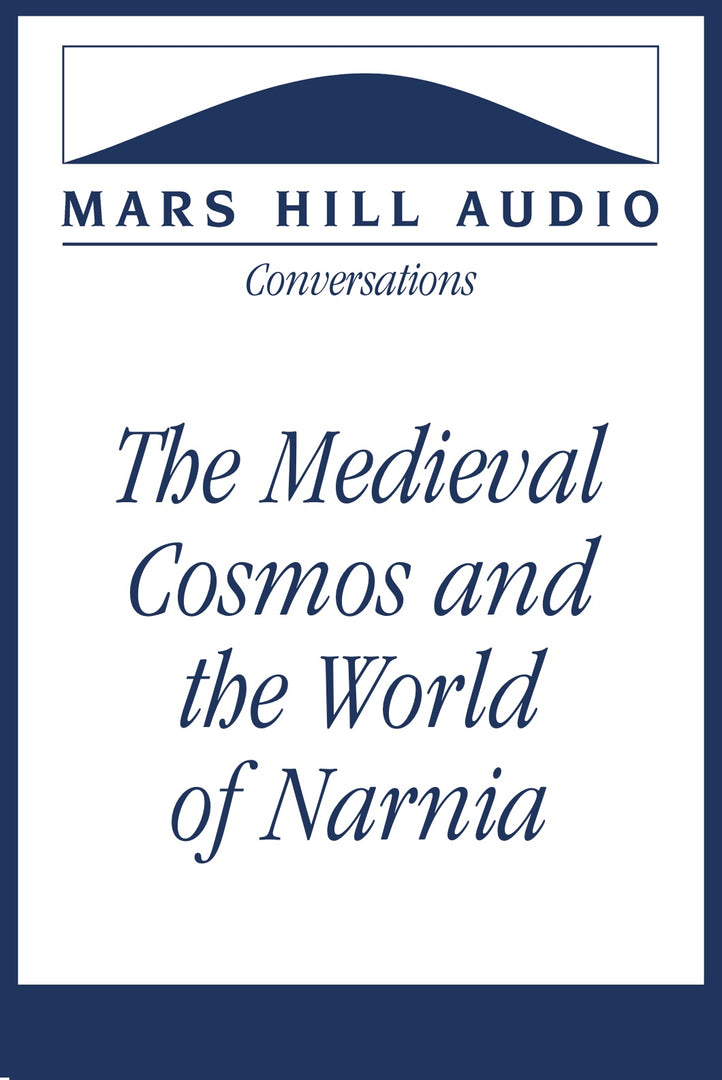
For decades, readers and scholars have wondered whether there was a Master Plan for the structure of the seven books in C. S. Lewis’s Chronicles of Narnia. In his book Planet Narnia, Michael Ward makes a compelling case that the qualities attributed to the seven planets in the cosmology of antiquity and the Middle Ages are embodied in the seven books about Narnia. In this Conversation, Ward explains why Lewis thought the pre-Copernican view of the cosmos can still be of spiritual benefit, that although it may not be true in a factual sense, its beauty nonetheless reveals deeper truths.
67 minutes.
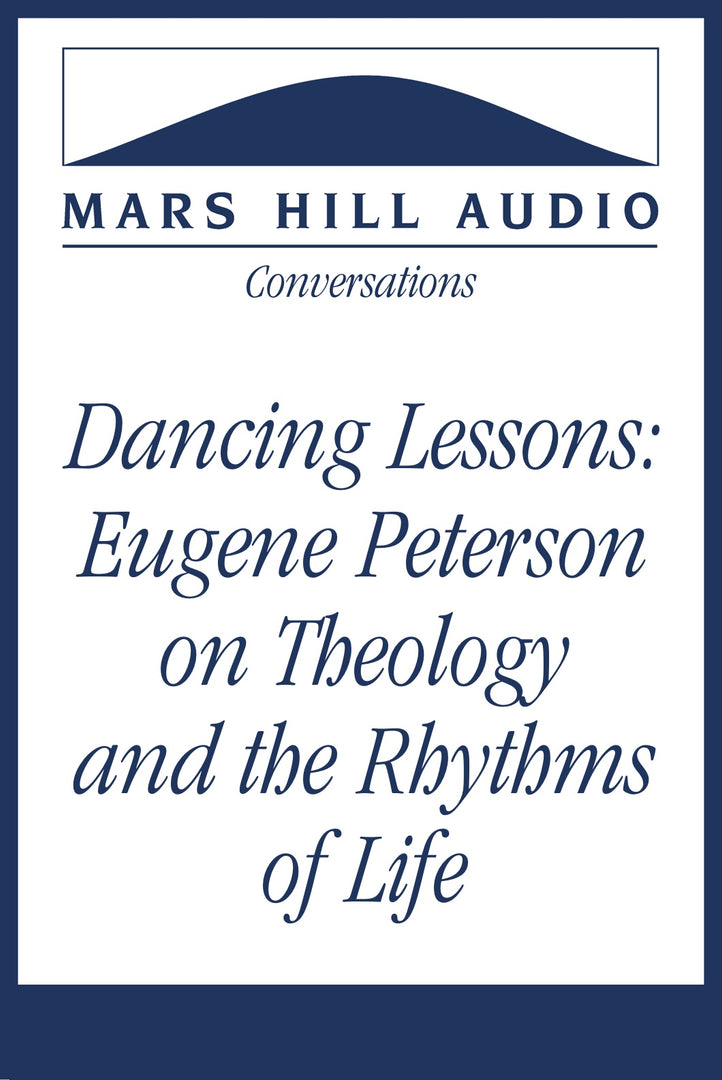
In his 2005 book, Christ Plays in Ten Thousand Places, pastor-theologian Eugene Peterson argued that believers should attend to the way God works in creation, history, and community. Such attention prevents theology from being mere abstraction and spirituality from becoming vague and gnostic. In this Conversation, Peterson discusses the necessity of taking time in worship; the benefits and liabilities of small groups; the delightful gifts of language; and the centrality of “fear of the Lord” in describing our response to God’s initiative in salvation.
73 minutes.
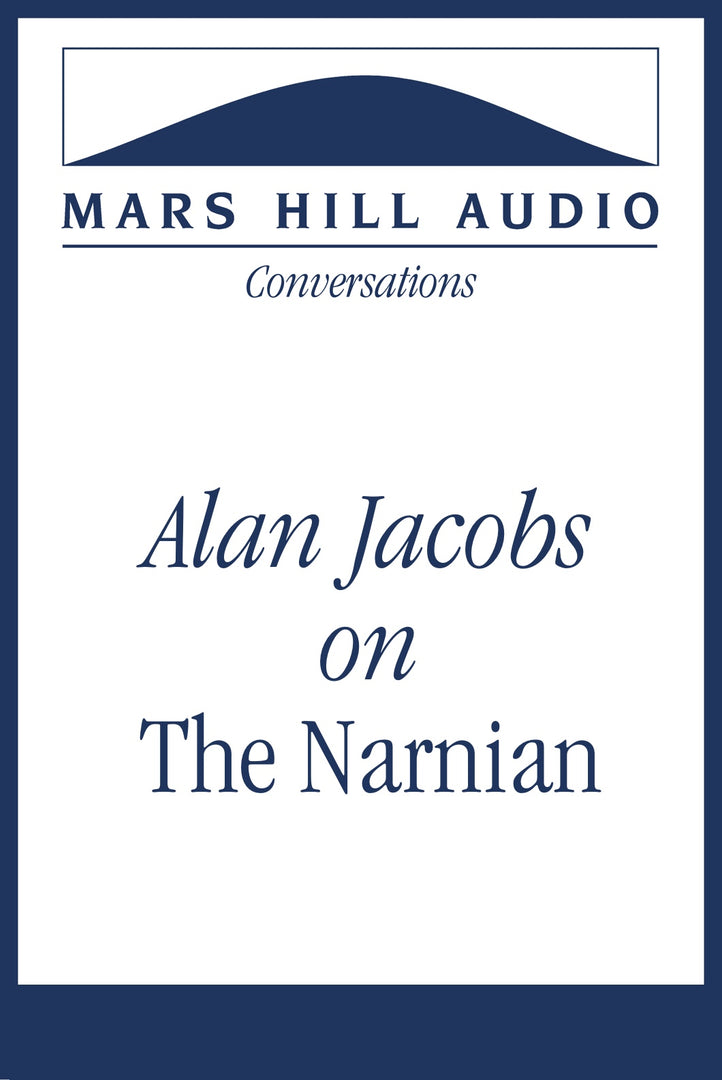
In this Conversation with Ken Myers, Alan Jacobs, author of The Narnian: The Life and Imagination of C. S. Lewis, discusses a number of Lewis’s writings, including The Great Divorce, The Abolition of Man, The Magician’s Nephew, That Hideous Strength, and The Pilgrim’s Regress. The theme that dominates the discussion is Lewis's view of the imagination, and his deep conviction that the shaping of the conscience requires the training of the imagination.
53 minutes.
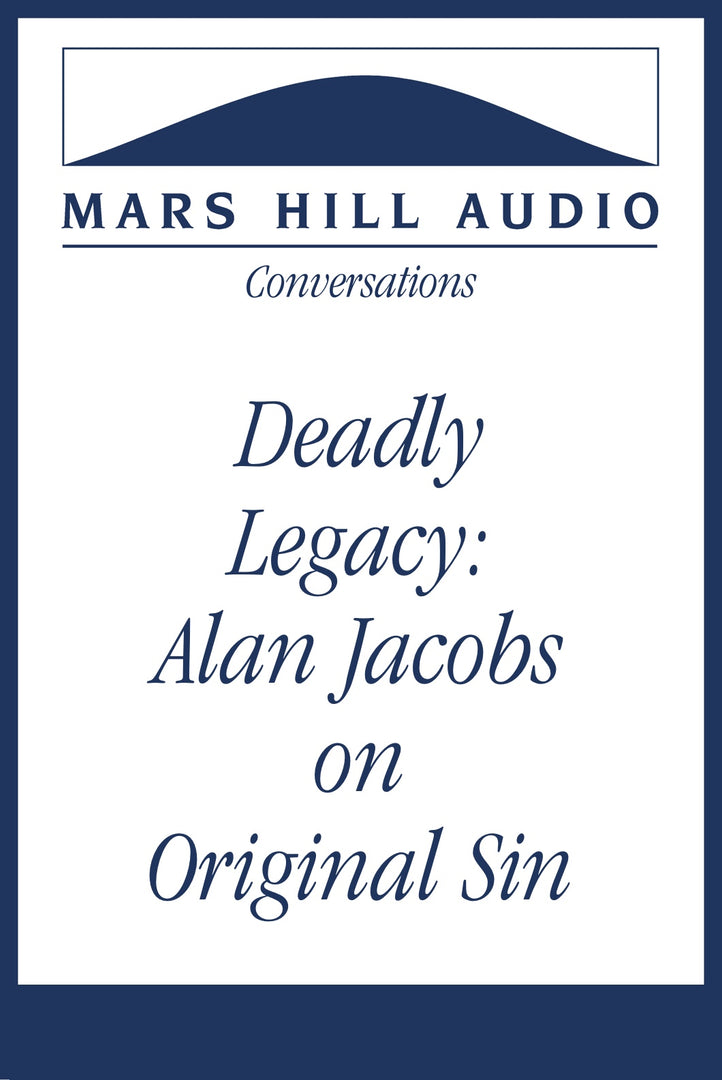
Literary critic and C. S. Lewis biographer Alan Jacobs has enriched our understanding of Christian faith and its consequences with his thoughtful book Original Sin: A Cultural History (2008). The book looks at beliefs about human waywardness and its sources through much of Western history, and how those beliefs have affected literature, politics, music, education, and other spheres of human culture. In this Conversation, Jacobs explains how belief in original sin (in its Augustinian form) offers resources for comfort and community.
60 minutes.
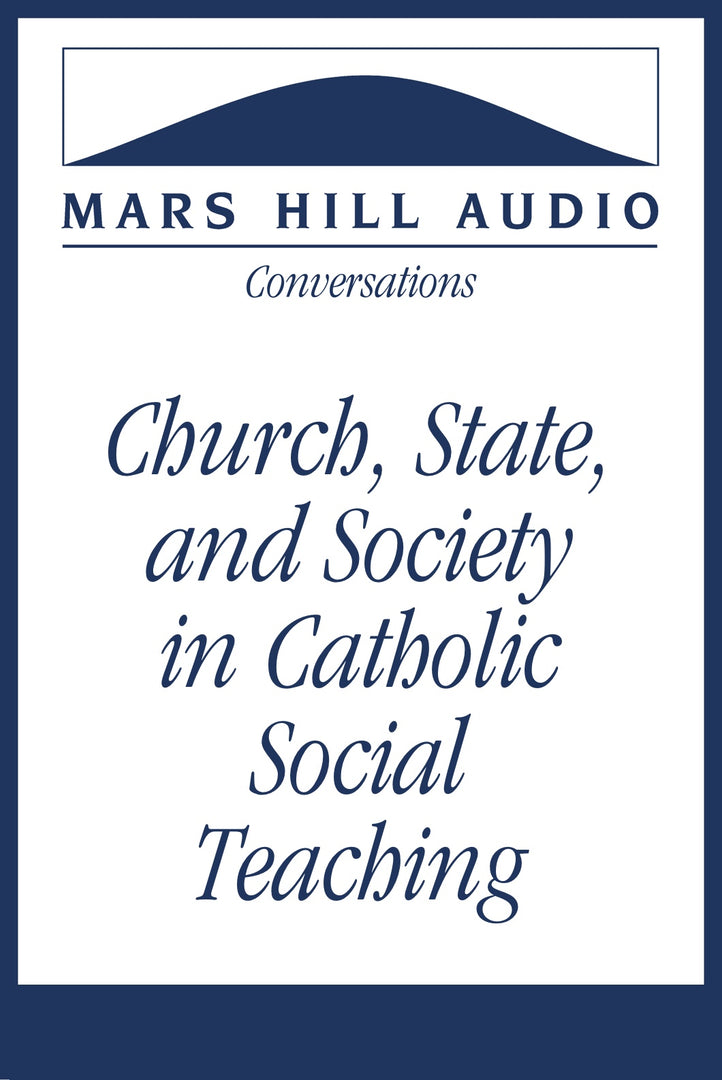
The development in nineteenth-century Catholic social thought of the idea of society as a spiritual and cultural reality is one of the themes in this Conversation with Dr. Russell Hittinger. In addition to the contribution of Pope Leo XIII and the revival of Thomistic thought to Catholic social thinking, Hittinger discusses the significance of marital notions to society, the limits of the idea of social contract, the effect of an increasing proportion of Muslims on European social thought, and how modern democracies have abandoned the project of understanding public life in moral terms.
60 minutes.
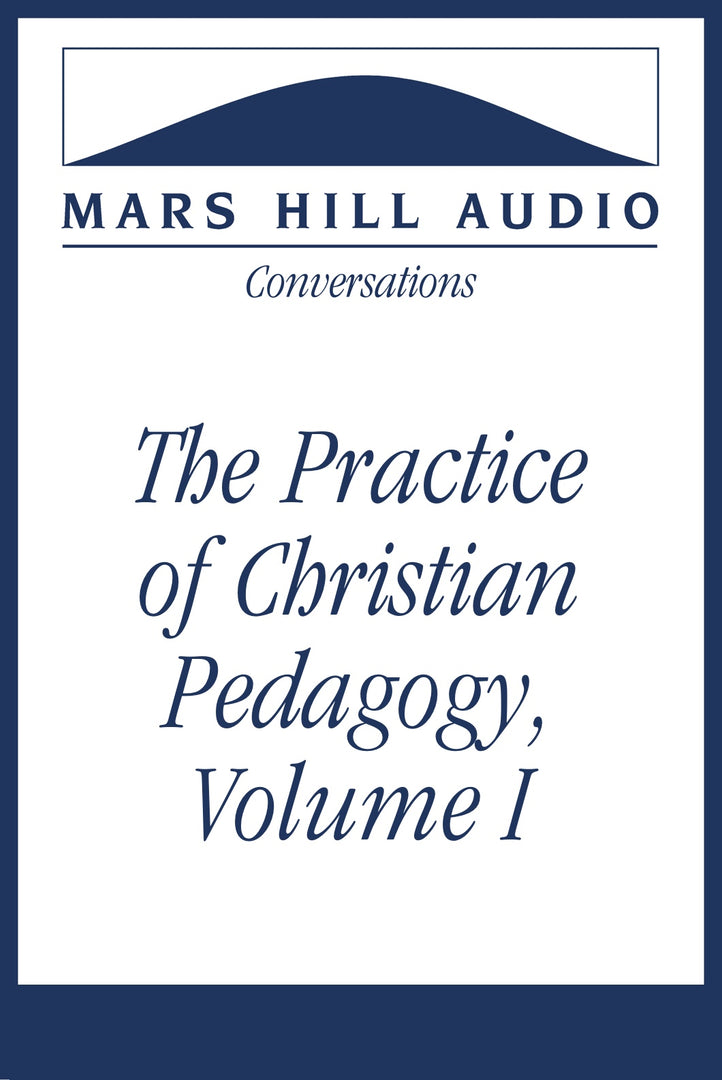
In recent years, Christian educators have rediscovered ancient ideas about how the head and heart interact. There is a relationship between the cultivation of affections, dispositions, and virtues, and the acquisition of knowledge. What we believe is inextricably linked to what we love and what we worship. What we love, in turn, is encouraged by practices: by the ways our bodies and imaginations engage the world of the senses. Christian educators are coming to question the idea that teaching is merely the transmission of ideas and are giving more attention to the formative power of classroom practices and the culture of schools. In this Conversation, David I. Smith, director of the Kuyers Institute for Christian Teaching and Learning at Calvin College, discusses some new insights on the practice of Christian pedagogy.
56 minutes.
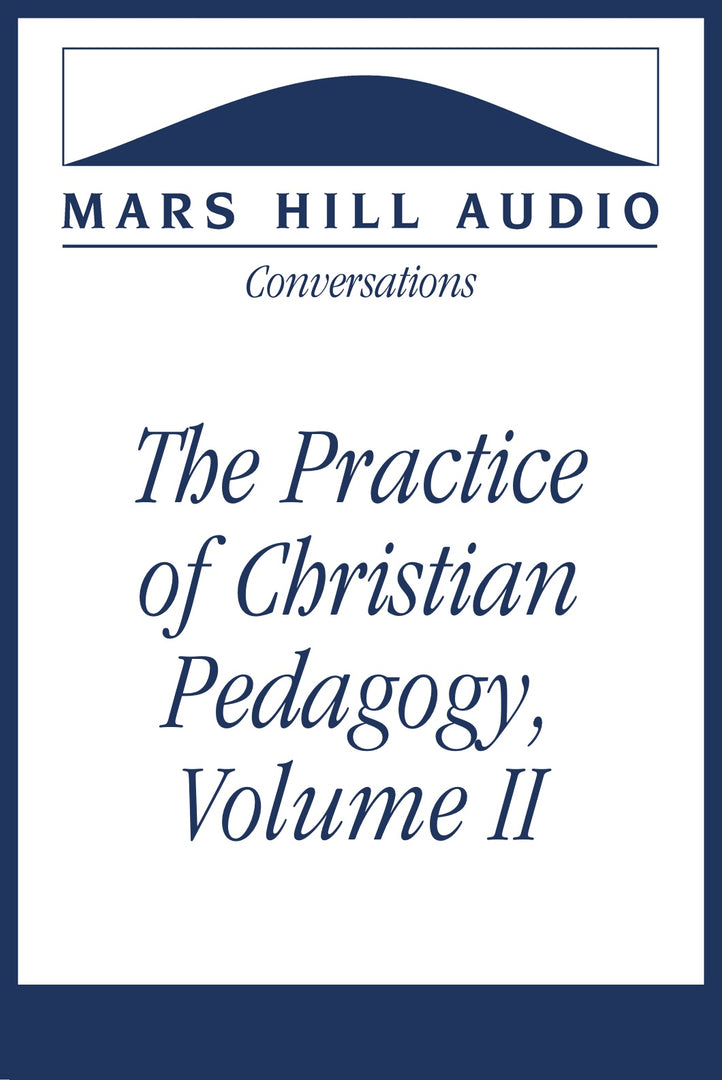
Language professor and pedagogue, David I. Smith, joins us again to discuss in more detail how practices in the classroom reinforce or contradict the goals of Christian teaching. The phrase “integration of faith and learning” has stimulated an abundance of scholarship on why faith and reason are compatible. It has also provoked extensive and various accounts of a “Christian worldview,” a phrase that often conveys a set of doctrines which, when applied to the goal of Christian teaching, places an emphasis on Christian belief over Christian practices. In this Conversation, David Smith argues that more attention needs to be given to the meaning conveyed in our methods and assumptions about teaching. Smith considers factors like body language and position; pictures and scenarios in textbooks; time, space, and sound in classroom interaction; and the cultural power of homework.
Smith’s book On Christian Teaching: Practicing Faith in the Classroom extends the ideas discussed in MARS HILL AUDIO Conversation 28: The Practice of Christian Pedagogy (Volume I). In this interview, Smith describes his process of pursuing a Christian vocation through teaching as well as the philosophical and biblical motivations for Christian pedagogy that are explored in the book Teaching and Christian Practices: Reshaping Faith and Learning, co-edited by Smith and his colleague James K. A. Smith.
63 minutes.
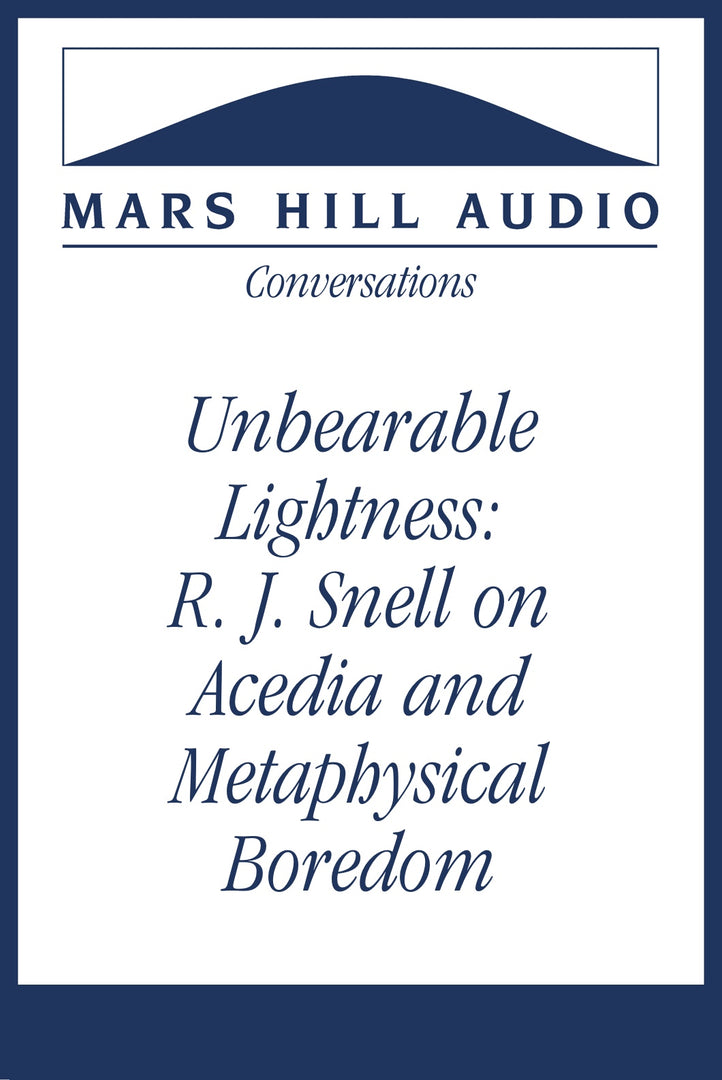
In 2004, theologian Michael Hanby wrote an article for Communio entitled “The Culture of Death, the Ontology of Boredom, and the Resistance of Joy,” in which he described boredom as the “noughting” of the world, a disposition that no longer finds the world captivating and which is incapable of being captivated. In this interview, philosopher R. J. Snell draws from how Hanby uses the verb “noughting” to interpret boredom, and connects it with the capital vice of acedia — or its token symptom, sloth — to help us recognize how this particular vice captures the “mood of our age.” Snell argues that the metaphysical boredom of modernity is sustained by our deeply-held convictions about freedom and contingency, which view the former as necessary and the latter as offensive. Like a sulking child, the slothful prefer to choose nothing rather than accept the neediness and dependency implied by our finite existence. When this slothful posture expands to the metaphysical plane, boredom becomes the very denial of being itself or, in other words, the “noughting” of the world.
48 minutes.
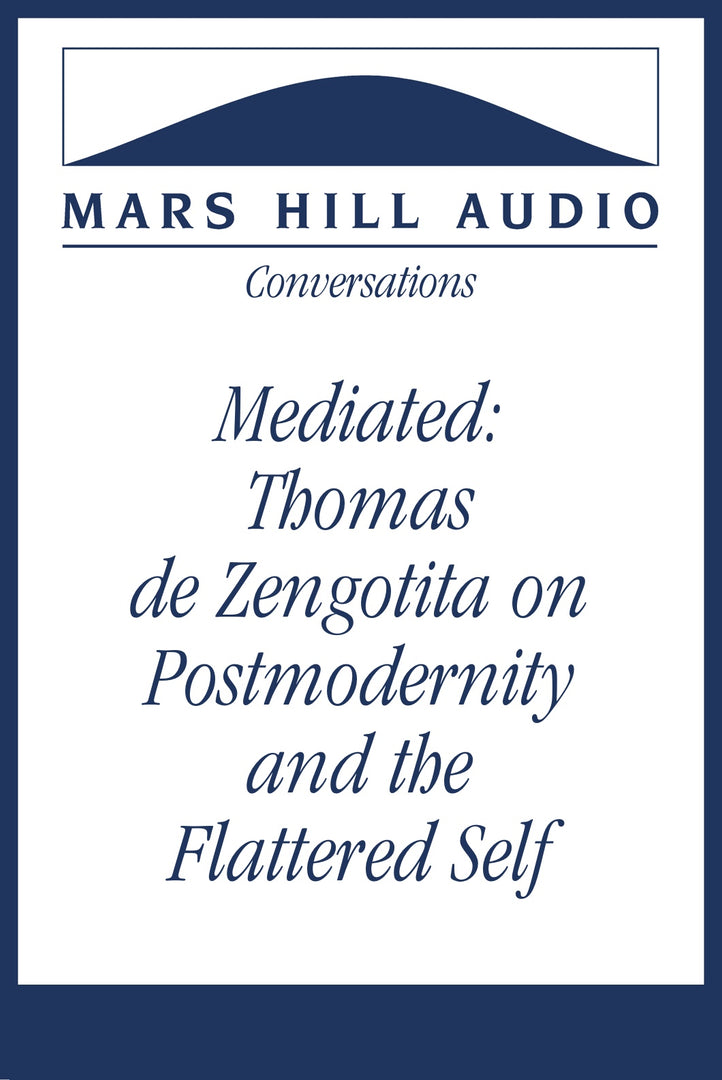
On this MARS HILL AUDIO Conversation, Ken Myers and Thomas de Zengotita discuss how the omnipresence of “representations”—forms of communication that have been deliberately manipulated and designed to address you—contributes to the widespread sense of entitlement and partiality for autonomous choice. The postmodern condition of being constantly addressed by advertising, emails, text messages, and television results in what de Zengotita calls “the flattered self,” a self, which if left unexamined, increasingly believes itself to be the center of the universe. In his book Mediated: How the Media Shapes Your World and the Way You Live in It, de Zengotita identifies how despite our unprecedented ability to “make ourselves,” the overwhelming flow of images, options, events, and stuff generates feelings of helplessness, apathy, ambiguity, and resignation, all of which are often evasively expressed in the multivalent utterance “Whatever.”
60 minutes.
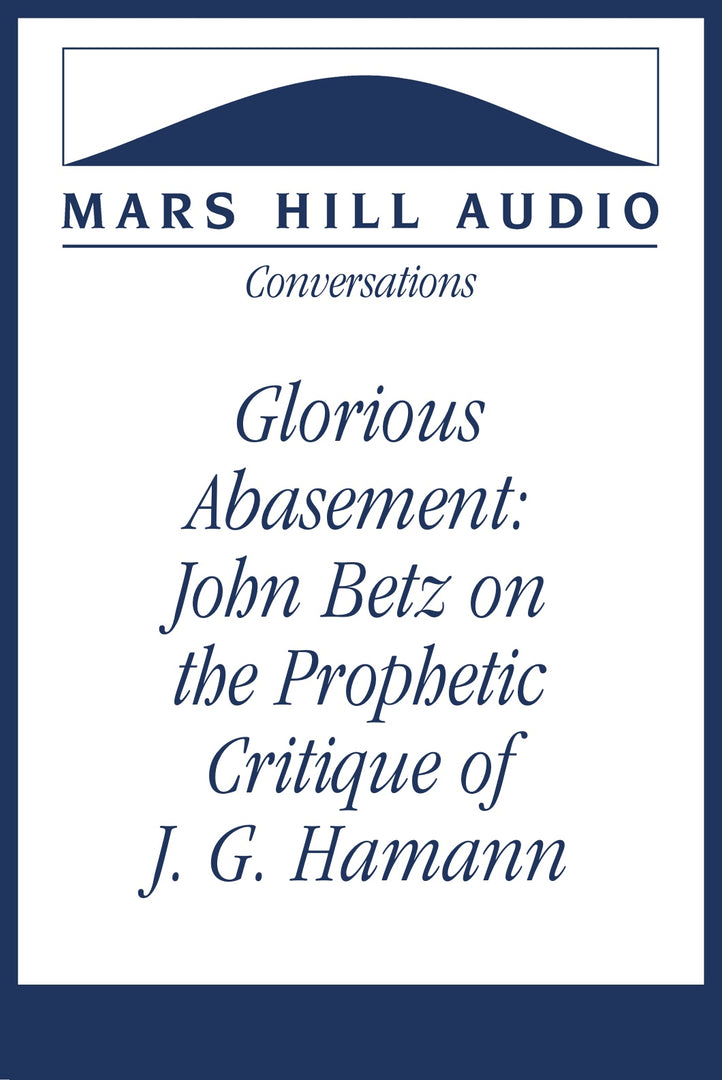
“It’s somehow the peculiar dialect of God that combines majesty with abasement, glory with this most incredible self-emptying. And [Hamann] sees this in creation, in Christ, and in the Scriptures, and so everywhere when he’s meditating on the Holy Trinity he sees this combination of glory and humility.”
—John Betz
Theologian John Betz discusses the eighteenth-century philosopher and translator, Johann Georg Hamann, critic and contemporary of Immanuel Kant and other prominent figures of the German Enlightenment. Hamann, even from the early stages of the Enlightenment, saw and argued that the project of modernity would lead to its own destruction. Hamann argued that reason could not, by itself in a pure form, give a complete account of reality, for he saw that the modern ideal of “pure reason” is a fiction. Reason, he argued, is always embedded within an historical culture and language from which one can never fully be detached. In his evaluation, Hamann anticipated the postmodern critics of the twentieth century; however, he avoided the nihilism of postmodernism by observing the revelatory character of language and history. By focusing on the divine kenosis or humility of God, who creates, reveals, and condescends to humanity through His Word, Hamann maintained that man’s pursuit of truth is always contingent on God’s Word in special and general revelation through history and creation. Throughout the interview, Professor Betz describes the centrality of God’s condescension in Hamann’s understanding of knowledge and reason. It is through the humility of God in his condescension to communicate to man that Hamann recognizes the Promethean project of modernity to attain enlightenment from man’s resources alone.
56 minutes.
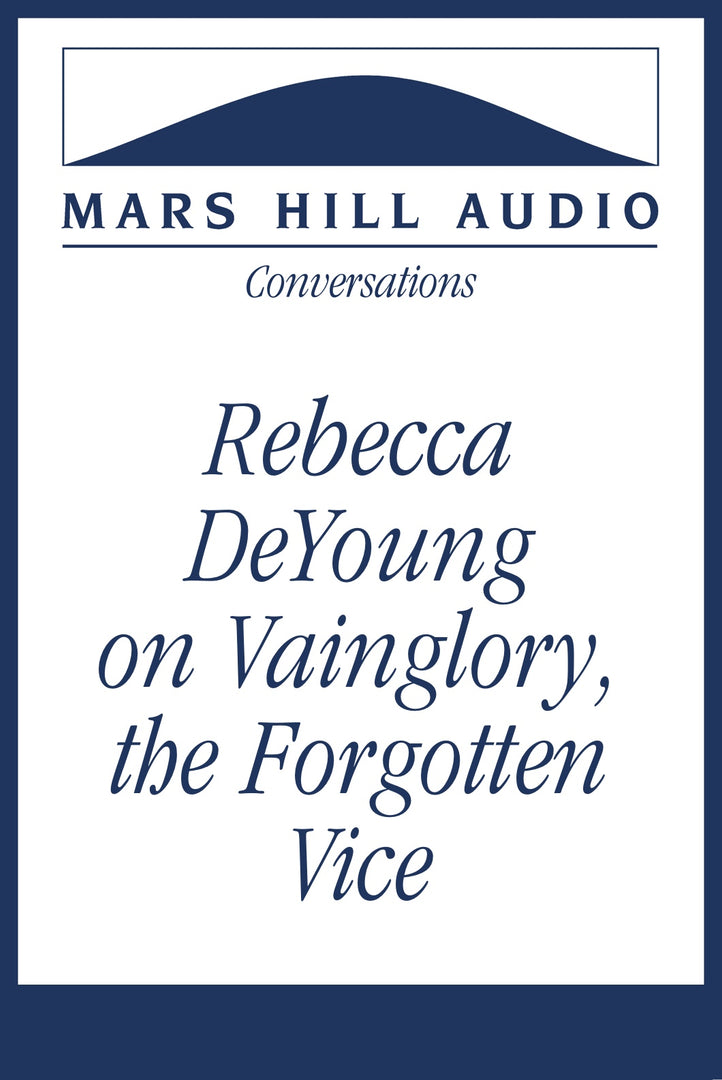
During the last thirty-five years — and particularly since Alasdair MacIntyre’s After Virtue — contemporary moral philosophy has recovered the language of virtues. Virtue ethics has its roots in ancient Greek philosophy, but was soon adopted into the Christian tradition by the early church fathers.
With the naming of virtues, of course, comes the naming of vices. In this conversation, philosopher Rebecca DeYoung explains how the language of vices speaks to patterns or narratives in our lives that are distinct from original sin and from acts of rule-breaking. Drawing from the wisdom of the Desert Fathers, DeYoung describes vainglory and the other “deadly sins” as capital vices from which more vices materialize.
But what is vainglory? Most people know the seven deadly sins — if they know them at all — as gluttony, greed, sloth, envy, wrath, pride, and lust. But traditionally, pride was the source of all vice and vainglory was among the original list of seven. Though this bygone word seems to have disappeared from our cultural memory, DeYoung argues that it is a term worth recovering in a time when we are constantly tempted toward vainglory.
56 minutes.
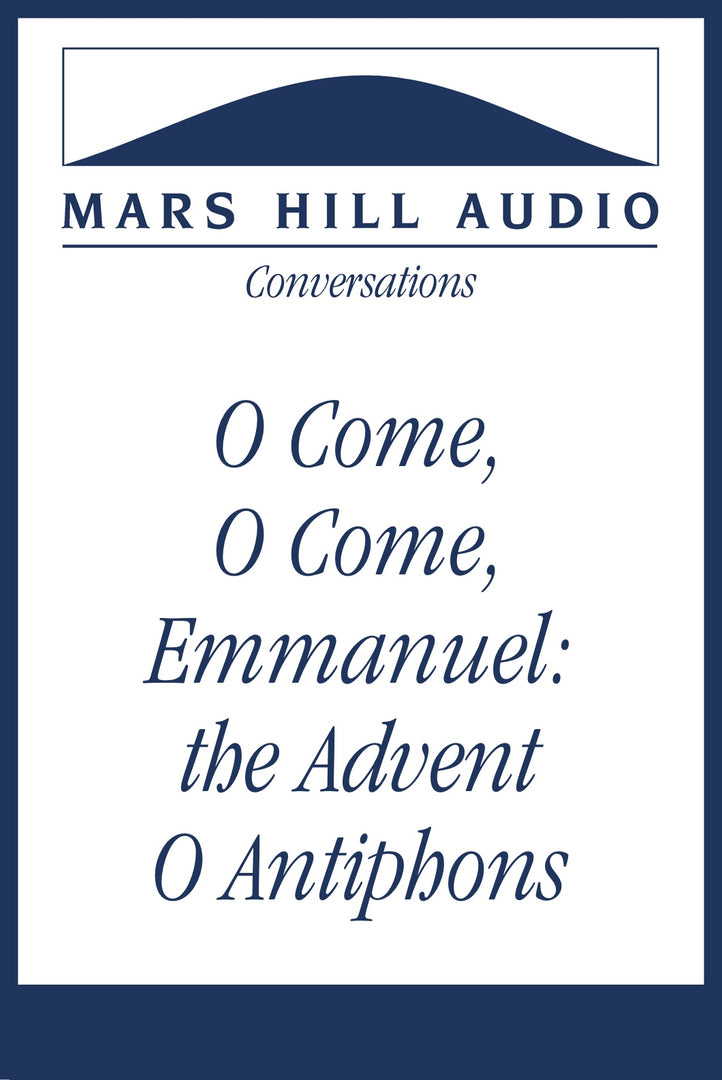
The familiar Advent hymn “O Come, O Come, Emmanuel,” itself a translation of the Latin hymn Veni, veni, Emmanuel, is a summary of the early liturgical plainchant antiphons that were traditionally sung during the week before Christmas. Known as the “O Antiphons,” these chants were sung in vespers services as liturgical responses on either side of Mary’s Magnificat. Each antiphon highlights a scriptural reference to Christ — O Sapientia, O Adonai, O Radix Jesse, O Clavis David, O Oriens, O Rex Gentium, and O Emmanuel — by way of preparation for Christ’s coming.
The original order of the antiphons is a bit different than the order of verses that appears in the hymn we sing today. Emmanuel is, in the traditional structure, the name invoked on the last of these seven nights. O Sapientia was originally the first of the seven, and the Latin text translates as: “O Wisdom, coming forth from the mouth of the Most High, reaching from one end to the other mightily, and sweetly ordering all things: Come and teach us the way of prudence.”
In this Conversation, poet and priest Malcolm Guite talks about his seven sonnets corresponding to the seven “O Antiphons.” Also included in this Conversation is an interview with composer J. A. C. Redford, who collaborated with Malcolm Guite to set Guite’s seven “O Antiphons” to music for unaccompanied choir. In these interviews, the poet and composer discuss how poetry and liturgy invite repetition, and how music can be an interpretation of a text so as to aid how one “inhabits” poetry over time.
45 minutes.
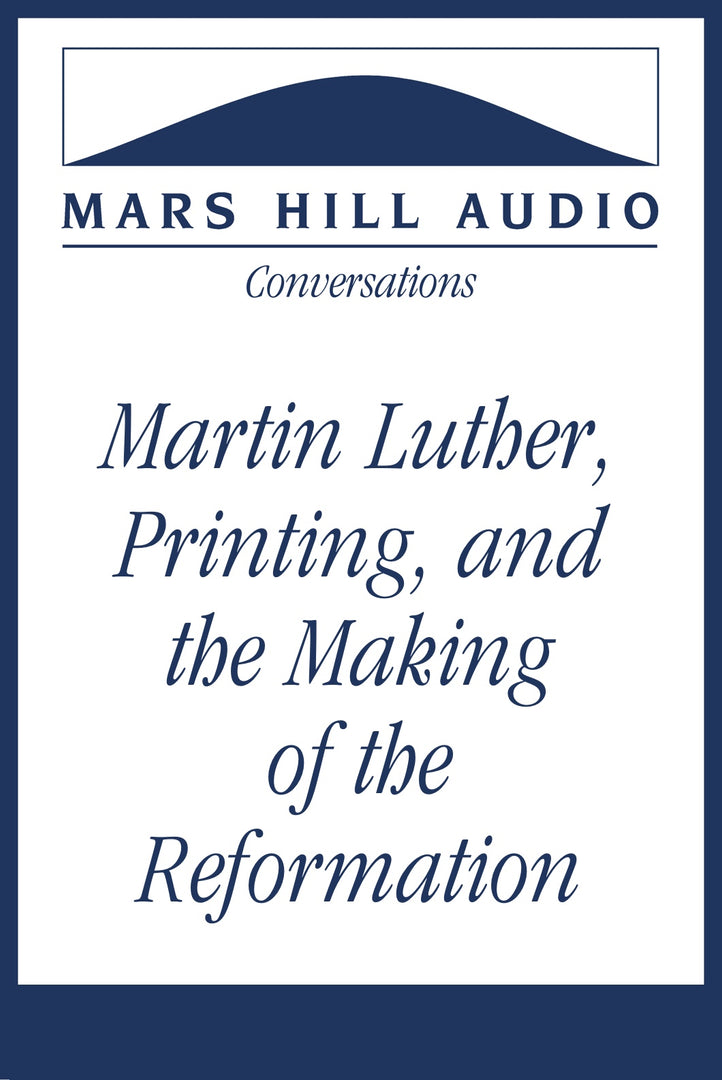
It is often noted that Martin Luther’s Reformation could never have advanced the way it did without the technology of the printing industry. While the coincidence of Luther and the printing press undoubtedly contributed to the Reformation’s rapid spread, the printing world at the time of Luther was largely under the patronage of the Catholic church (a large portion of which went toward the printing of indulgence certificates), and it was not inevitable, according to Andrew Pettegree, that “print would become an agent of insurrection.” In his book, Brand Luther: 1517, Printing, and the Making of the Reformation, historian Andrew Pettegree shows how Luther’s facility for writing in German and his intuitive business sense not only spread ideas and incited controversy, but completely transformed the distribution model of the printing industry.
56 minutes.
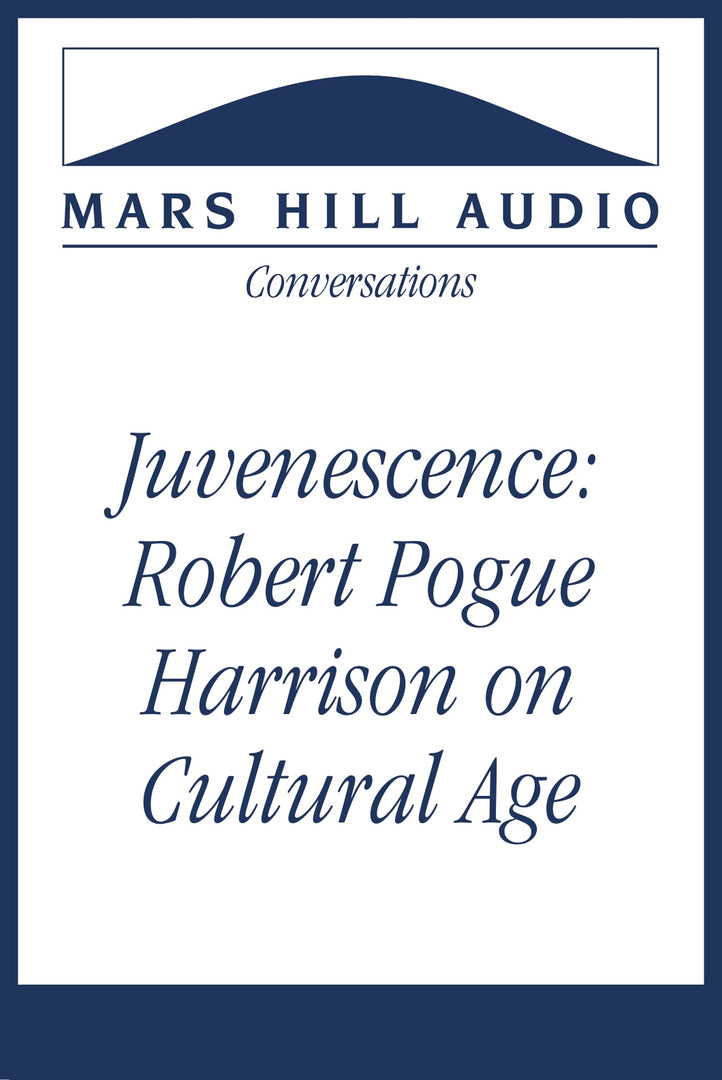
Cultural critic and professor of Italian literature, Robert Pogue Harrison, examines the conditions in which cultural transmission can take place. In his book, Juvenescence: A Cultural History of Our Age, Harrison argues that Western culture is on the cusp of a new mode of civilization that can either result in a rejuvenation of the legacies of the past or in their juvenilization, the latter of which would lead to a loss of cultural memory and the infantilization of desires. A culture undergoing juvenescence, when it is going in the direction of juvenilization, is at risk of both cultural amnesia and orphanhood. Harrison reflects not only upon the ways in which our culture is evolving into a younger way of being human, but also upon the peculiar and precious qualities of youth that are uniquely receptive to fostering the amor mundi needed to preserve and transmit a world of permanence and belonging.
48 minutes.
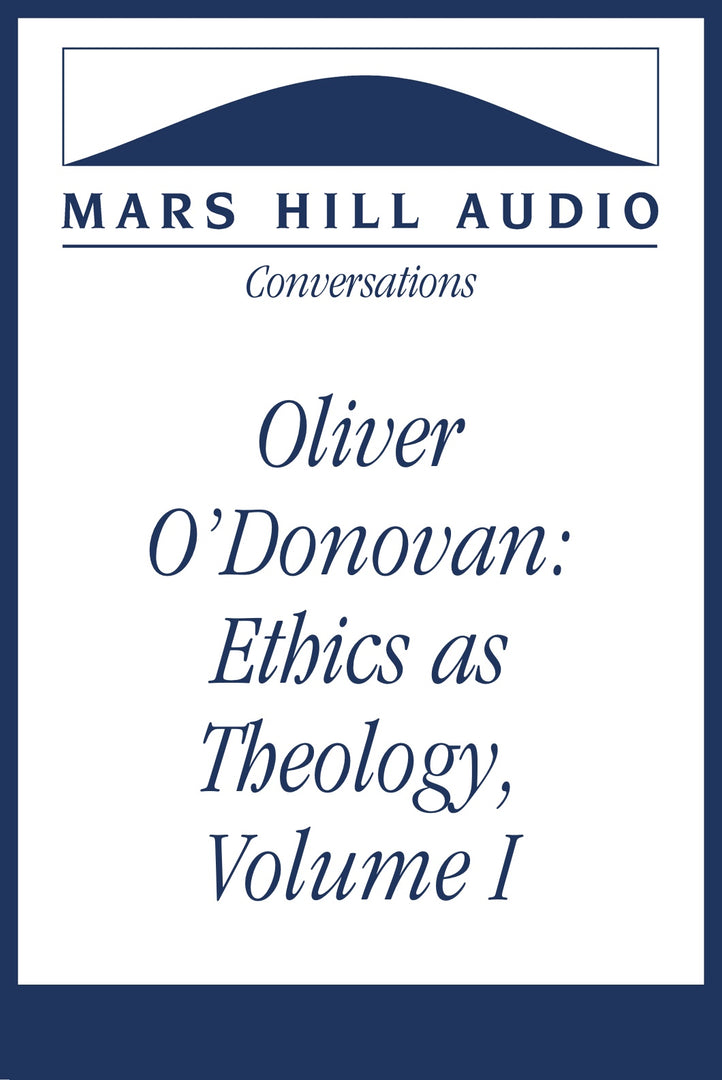
In this extended Conversation, moral philosopher, Oliver O’Donovan, joins Ken Myers to discuss the first two volumes of O’Donovan’s three-volume set Ethics as Theology. In this conversation, O’Donovan identifies some important touchstones that have guided his thinking about moral reflection, including his insight in Resurrection and Moral Order (1986) that moral thinking and action proceed from, and must resonate with, the realities of the created order. O’Donovan also reflects upon the significance of the thinking moral subject as well as what form of moral inadequacy the “life of the flesh” suggests.
Portions of this interview were originally published on Volume 127 of the MARS HILL AUDIO Journal. 60 minutes.
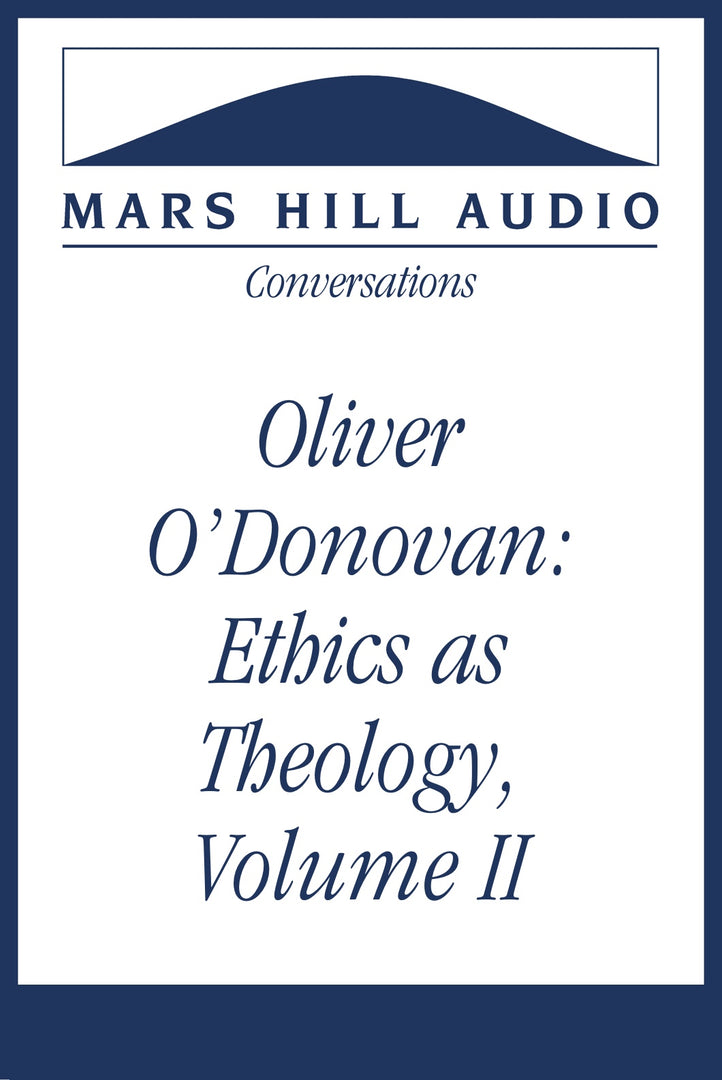
In this extended Conversation with theologian and ethicist, Oliver O’Donovan, O’Donovan talks about how “love” as an ethical and existential category connects to the theological virtue of love consummated in the Kingdom of Heaven. O’Donovan’s final volume in the Ethics as Theology series, Entering into Rest, deals primarily with how love is transformed and “made fit for the presence of God.” But correspondingly, O’Donovan’s work also inquires into how the love operating now in the eschatological Church affects how we order our lives tomorrow in the world. Drawing from St. Augustine and figures such as Aelred of Rievaulx, O’Donovan describes how the Church, communication, community, and friendship all significantly contribute to how we understand the role of love in both ethical and political reflection.
Portions of this interview were originally published on Volume 138 of the MARS HILL AUDIO Journal. 52 minutes.
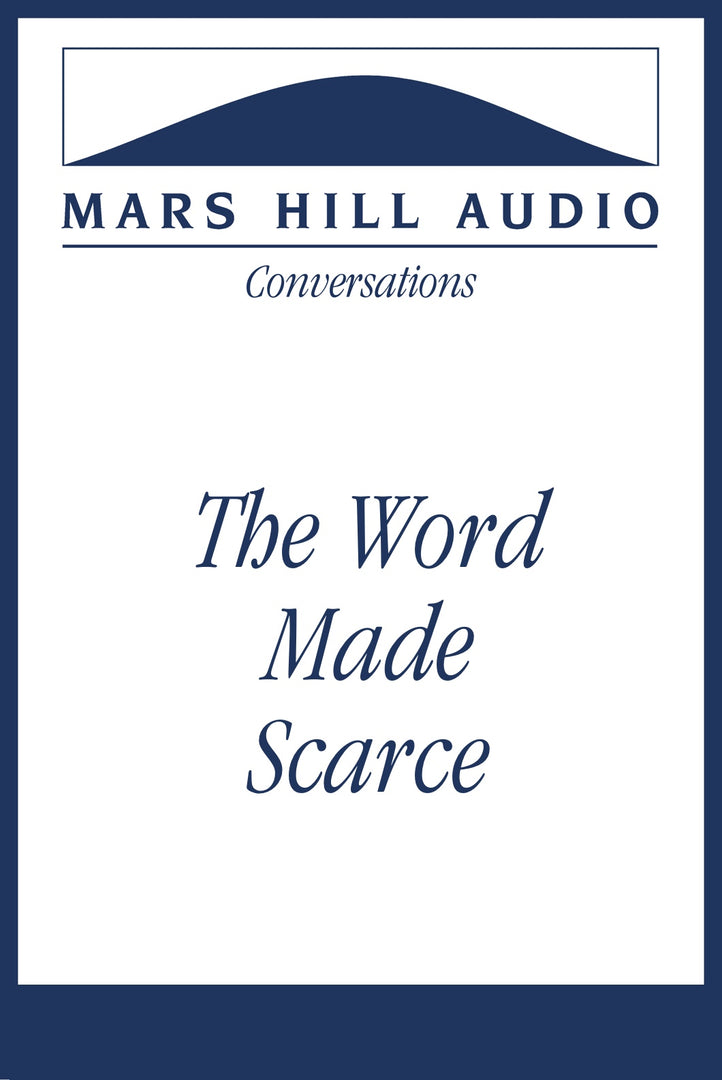
Barry Sanders, author of A is for Ox, discusses teaching in the age of technology, the effects of literacy on society, and the links between illiteracy and violence. Sanders believes literacy is impossible without an oral phase of community of memory, from which the memory, conscience, and sense of self develop.
54 minutes.
Since 1993, the Mars Hill Audio Journal has provided thoughtful interviews and commentary to thousands of listeners.
Now you can sign up for a membership and listen to almost everything we’ve produced for over 30 years, as well as many hours of content from Partner organizations.
